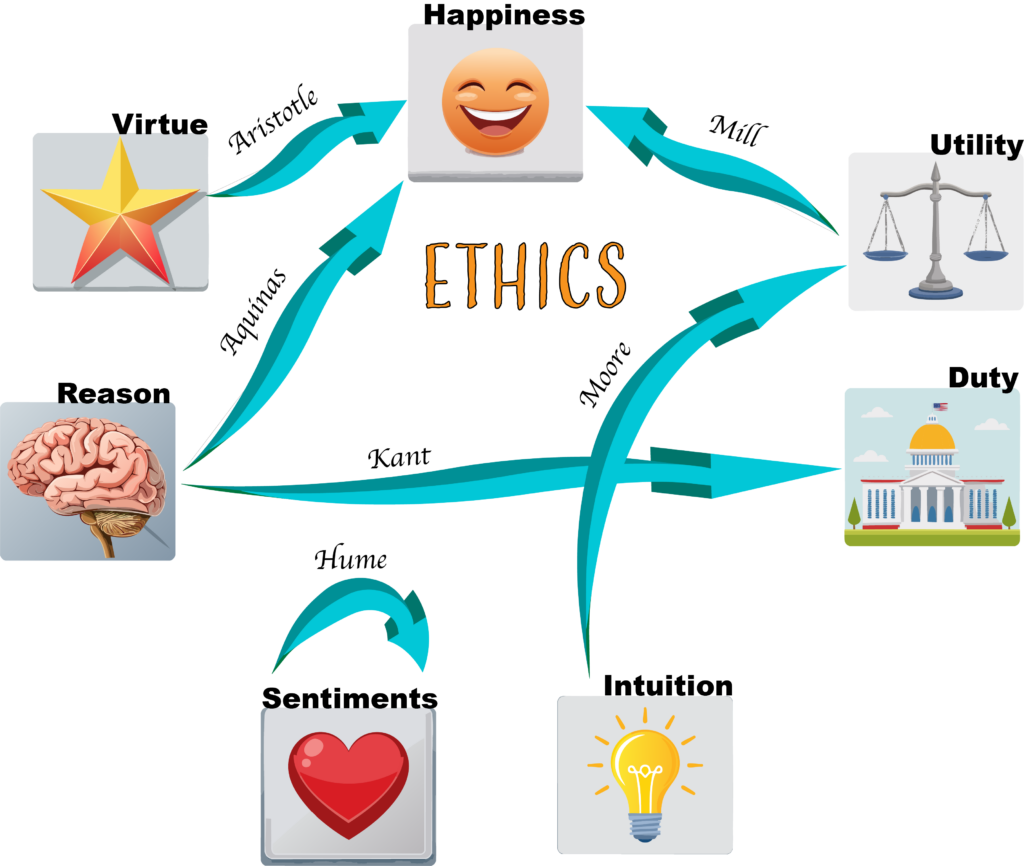I’ve been listening to a series of episodes about ethics on the podcast The Partially Examined Life. In order to try and make sense of it all, I decided to write my own summary in the style of Randall Munroe’s Thing Exmplainer where he explains complex topics using only the 1000 most common words. I have added the names of philosophers and added some notes to connect with the key terms they really used.
Having done that, I decided to take it a step further and just draw a picture. In this diagram the arrow for each philosopher starts with where they think ethical standards come from the point to what they think makes us follow these standards.

I find that this kind of vast oversimplification really helps me understand things. It gives me a framework on which to hang all the complications. So here’s what I take away from all this:
All of these philosophers seem to think that ethical truths start with some type of inspiration. This may be a feeling (Hume) or the perception of an ethical fact (Moore) or the idea that we need to think about it to figure out what’s right (Kant). They pretty much all admit that some cases are complicated and reason will be involved along the way. Then they give some very different reasons why we should do the right thing. I rather like the idea from Korsgaard, discussed in Ep. 371: Christine Korsgaard on Normativity (Part One), that the we follow different morals based on the different identities we choose. You might sacrifice for your child because you identify as a parent, follow a law because you identify as a citizen, or give to the poor because you identify as a human.